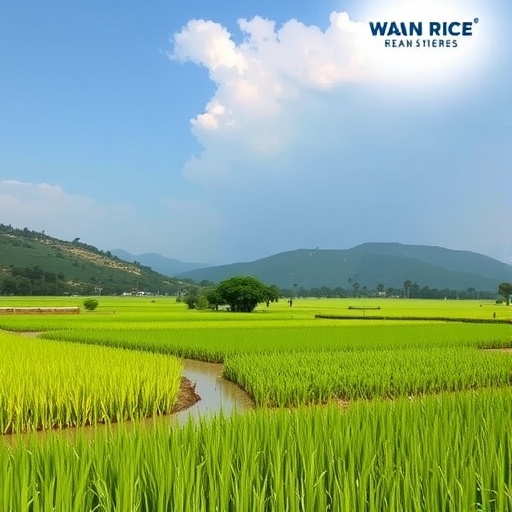Enhancing Upland Rice Resistance Against Rice Blast: A Study in Ethiopia
In the realm of agricultural research, the resilience of upland rice has taken center stage, especially in regions vulnerable to challenging environmental conditions. This focus is particularly pertinent in the Metekel Zone of North West Ethiopia, where researchers have delved into adult-plant resistance in upland rice genotypes against Pyricularia oryzae, the notorious pathogen responsible for rice blast disease.
The Significance of Adult-Plant Resistance in Upland Rice
Understanding Rice Blast
Rice blast is one of the most destructive diseases affecting rice globally, threatening the livelihoods of millions who depend on this staple crop. The ability of upland rice to withstand such pathogens through adult-plant resistance offers a promising avenue for enhancing food security.
Impact of Climate Change on Rice Production
The increasing frequency of extreme weather events and fluctuating climatic conditions magnifies the vulnerability of rice crops to diseases. According to the findings of this research, exploring the genetic diversity of upland rice may be pivotal in developing varieties that can withstand both environmental stressors and pathogens. Understanding resistance mechanisms at the adult-plant stage is essential for maintaining productivity in real-world agricultural settings where pathogens thrive.
Research Methodology: A Comprehensive Approach
The multidisciplinary approach utilized by researchers involved controlled field trials alongside genetic assessments, effectively evaluating diverse upland rice genotypes. This comprehensive study employed:
- Phenotypic Evaluations: Analyzing growth patterns and yield parameters of various rice lines to identify traits linked to effective resistance.
- Genetic Assessments: Understanding the underlying genetic factors contributing to resilience against rice blast.
These methodologies revealed significant differences in resilience among genotypes, offering insights for targeted breeding programs focused on enhancing resistance traits.
Findings: Promising Genotypes for Future Breeding
The research unveiled compelling evidence of certain upland rice genotypes exhibiting robust resistance during their adult growth phase. The implications of these findings urge the integration of biological insights into breeding programs. As climate unpredictability continues to rise, the incorporation of these resistant traits becomes increasingly critical.
Importance of Participatory Breeding Initiatives
Engaging local farmers in participatory breeding initiatives not only empowers them but also ensures that newly developed rice varieties meet their specific agricultural needs. Such collaboration enhances the likelihood of adopting these varieties, contributing to the sustainable practices necessary for successful implementation.
Integrated Pest Management: A Holistic Approach
Beyond genetic resistance, the study accentuates the significance of integrated pest management (IPM) strategies. Combining resistant genotypes with effective cultural practices can form a robust framework for managing rice blast. This comprehensive approach emphasizes that merely breeding resistant crops won’t suffice without sustainable farming practices that address broader pest and disease pressures.
Broader Implications for Global Rice Production
The findings of this research extend well beyond Ethiopia, presenting valuable insights for rice-producing countries grappling with similar challenges posed by P. oryzae. The current global agricultural landscape calls for a united front in tackling food security issues. By openly sharing knowledge and best practices, countries can collaboratively enhance their agricultural resilience.
Future Directions and Policy Support
Continuous research collaboration between academic institutions, agricultural organizations, and local farmers remains crucial for advancing resistant genotypes. The researchers stress the need for policy support that facilitates the integration of these insights into practical farming solutions. Ensuring the availability of seed production resources will empower farmers to adopt these resilient varieties effectively.
Conclusion: A Pathway Towards Sustainable Agriculture
In summary, the exploration of adult-plant resistance in upland rice against Pyricularia oryzae symbolizes a hopeful trajectory for agricultural research focused on mitigating the threats rice farmers face. By marrying genetic understanding with sustainable agricultural practices, this initiative sets a robust foundation for tackling the challenges posed by climate change and food security.
For further reading, check out studies on rice blast resistance mechanisms and integrated pest management.
The quest for resilient and equitable food systems continues, and ongoing innovations in crop breeding and sustainable practices promise a brighter future in agricultural production.
